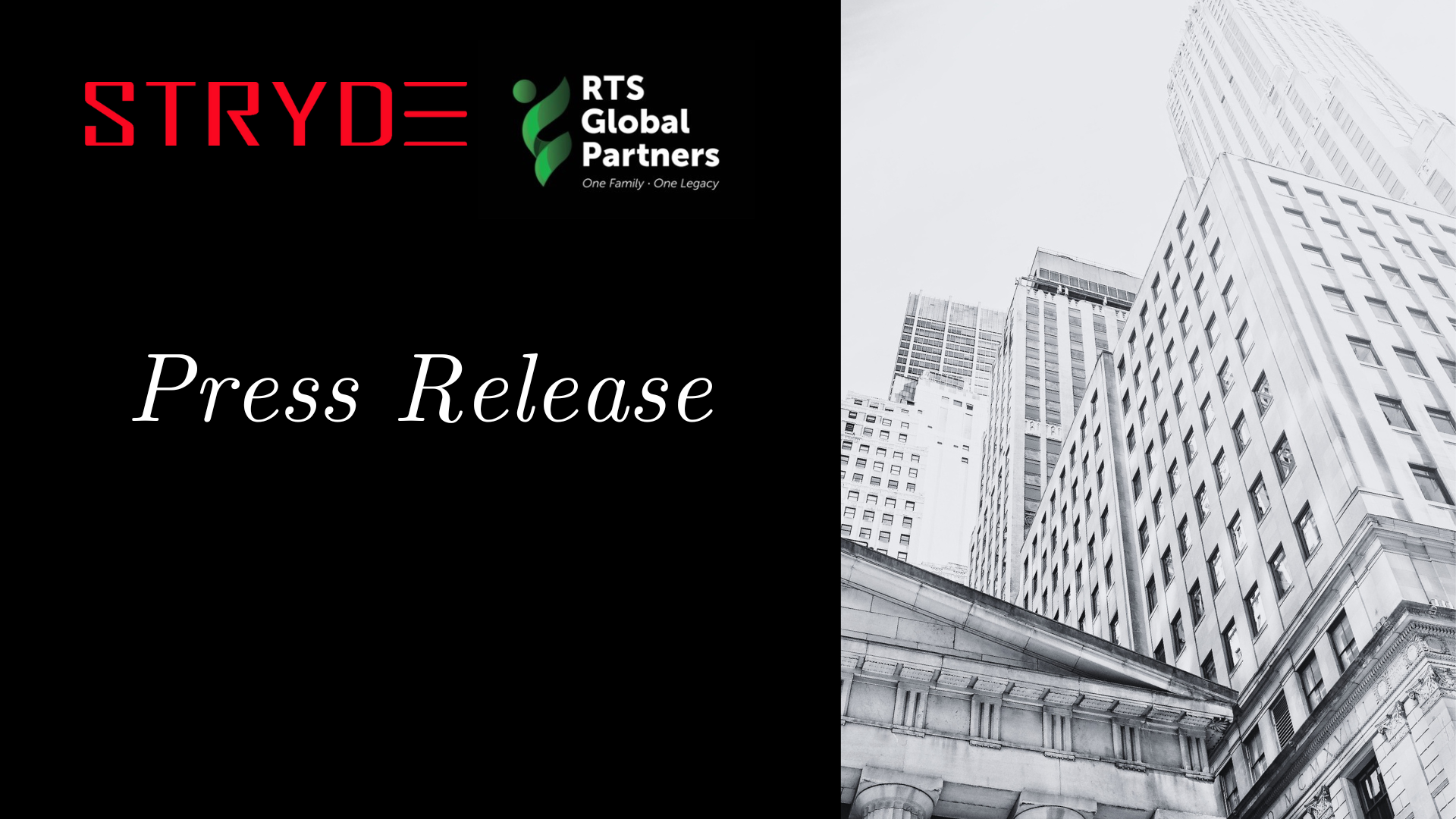.png.jpg)
2024-05-17
The Foundation of a Successful Family Office
Values play a crucial role in a family office for many reasons. Most importantly, they serve as guiding principles that shape culture and behavior within the family office and/or family business. When values are defined, agreed upon, and widely understood in a family they provide a sense of direction and framework for decision-making. This is particularly important as a family grows and assets move beyond the original wealth creator.
In the family office space, the focus is typically where and how to invest capital. Money matters! However, values and culture can propel a family forward in a unified way. The history of successful, enduring, multi-generational families points to the importance of exemplary wealth planning and fostering a positive culture in a family.
Values can help guide current and future generations in a variety of ways. They can determine investment priorities, educational practices, family unity projects, collective philanthropic giving, and who to hire into leadership roles. In theory, governance practices should help systematize a family's values and guiding principles. Family constitutions, formed around values, act as a roadmap for how a family can navigate transitions and resolve potential conflicts.
Other governance structures such as a family council, a strategic investment framework, risk management guidelines, family office handbook should strive to translate the values into tangible behavior.
This article seeks to explain the benefits of having a set of values that are widely accepted and understood. Before delving into the benefits, let’s look at what values are.
What are values?
In the influential book Built to Last, by Jim Collins and Jerry Porras, first published in 1994, core values are described as the handful of beliefs, guiding principles, or tenets that are absolutely non-negotiable within an organization. A mission/vision provides strategic purpose, and values help define the journey. In the same book Collins and Porras provide numerous examples of ‘great’ organizations that have been guided by their core values. Values, of course, can be personal, or collectively defined. Jim Collins highlights “It really matters that you have core values. It really doesn’t matter what they are!” He explains that each successful organization can have its own set of values, which ones you choose is somewhat significant, what is of greater significance is the consistent adherence to those values.
In the family office context, the term ‘values’ is used interchangeably with ‘guiding principles’. Whatever designation a family works with, all appropriate family members need to contribute to the discussion. It’s important not to get bogged down with definitions and jargon and to create authentic values that mean something to the family members involved in producing them.
At Stryde, we have learned through our conversations with families, that family plus wealth equals complexity. Where there is complexity, a core set of values is essential to aligning the family. Having values doesn’t guarantee long, enduring wealth, but it certainly increases a family’s chances of making it to the next generation if given the appropriate consideration.
Finally, values describe what is fundamentally important to a family; however, there are times when values can be aspirational. For example, a family may strive to be 'innovative' by including this as a value, it creates an expectation and structure to guide the family towards innovation.
The challenge of inherited wealth
While the first-generation wealth creator may be a story of ‘rags to riches’, the trend that too frequently follows is one of ‘rags to rags’. It is estimated that 70%* of wealthy families will lose their wealth by the second generation and 90% will lose it by the third. There are a variety of reasons why this happens.
First-generation wealth creators have worked hard, persevered in adversity, and succeeded by being talented, driven, and resilient. The second generation may have acquired some of these values, but by the third, these values become diluted as those family members have lived a very different life. Hence priorities change and problems tend to arise. The absence of purpose and values can mean a lack of family cohesion, feuds develop, wealth becomes divisive, and families torn apart.
Research published in the book Preparing Heirs: Five Steps to the Successful Transition of Family Wealth (Robert D. Reed Publishers, 2003), shows that even the best tactical planning is not enough. Their research with more than 3,000 families over 25 years demonstrated that 60% of unsuccessful wealth transitions could be traced to a breakdown of communication and trust within the family; 25% were caused by inadequate preparation of the heirs; 15% were attributed to other causes, and of those, only 3% had to do with professional failures in accounting, legal, financial, and tax advice. The rest could be attributed to the family's failure to have a family wealth mission or consensus.
Well-constructed and thought-out values can ease the transition of wealth from generation to generation, particularly if they are ‘codified’ into the governance systems and culture of a family, the family office, the foundation, and other related entities.
Legacy preservation
The concept of stewarding wealth can be traced to the original family offices in the USA in the 19th Century, so it is no wonder that it is a frequently referenced value in today’s family offices. By definition, stewardship is the dedication to responsible stewardship of wealth and resources with a focus on preserving and growing assets for current and future generations. Values like stewardship can act as a core tenet for maintaining a family’s wealth and help inform the next generation about how to uphold principles that have contributed to a family’s success.
Consider the following examples of well-known wealthy family in the United States and the dichotomy between how they each valued stewardship.
Case Study: The Du Pont Family
The Du Pont family, known for owning the DuPont Co., is one of the most affluent families in the United States and dates to the founder, Éleuthère Irénée du Pont, who established E.I. du Pont de Nemours and Company in 1802 (Forbes.com) estimates their current wealth at $18.1Bn). In the early 1900s, one of the Du Pont cousins who helped transform the family’s 100-year-old gunpowder business into the modern DuPont Co, wrote* to his nephew flagging his concern that “du Ponts born to a position of wealth, would not have to work for a living” and would require “greater moral stamina to combat the temptations of wealth and luxury and to carry forward, in a manner becoming the family traditions.” He warned: “If you fail in your example those immediately following you may do likewise.” This evidence shows Du Pont was emphasizing the importance of setting an example as a leader for future generations and was initiating a culture of stewardship. This was further highlighted by the action taken by his descendant Pierre S. du Pont who told his son, in 1969: “The trust coming your way from my father and our ancestors are not entirely for you. You have a responsibility to project them forward for your descendants and the communities they live in.”*
In this multi-generational family, the value of stewardship appears to have been passed down from generation to generation and lives on to this day.
Case Study: The Vanderbilt Family
In contrast to the Du Pont family, the Vanderbilt family is frequently cited as failing to preserve wealth for future generations. In the early 1800s Cornelius Vanderbilt invested money and grew his wealth to $100M, he went on to become the richest man in America until he died in 1877 (https://en.wikipedia.org/wiki/Vanderbilt_family.).
Cornelius Vanderbilt was a shrewd businessman and invested in the infrastructure of the USA, particularly in the steamboat and railroad industries. His son, William Henry Vanderbilt went on to increase the family’s wealth. By the third generation of Vanderbilts, their fortune had dwindled. They built many grand homes in Manhattan and the Breakers in Rhode Island and lived a lavish lifestyle, burning through a huge amount of cash in the process. The story of the Vanderbilts is well-documented and entails family feuds and lawsuits (reference source). Their legacy provides a cautionary tale of the pitfalls of consumerism and a lack of family cohesion.
Stakeholder alignment
Shared values promote unity and cohesion among family members, but also help align the interests of various stakeholders involved in the family office, including family members, employees, advisors, and external partners. A set of values can facilitate smoother relationships, help people navigate difficult situations, and avoid conflicts. For example, if there is a difference of opinion between family members about an investment decision, say one person wants to focus on an investment that could result in short-term returns and is at the expense of another long-term, innovative investment. Then the disagreeing parties could look to the values for guidance. If the values include principles of long-term sustainability and innovation, then the answer to this disagreement would be the latter investment.
Risk Management
Values serve as a moral compass, guiding the family office away from actions or investments that may compromise its integrity or reputation. They provide a framework for ethical conduct and risk management, ensuring that decisions are aligned with the family's principles. The family’s values should inform specific governance structures such as investment principles. If the family values environmental and social responsibility, then that should inform investment decisions. Senior executives, members of the investment team, and other employees in the family office, should see themselves as guardians of these values.
Evolving values
When family values are well constructed and thought out, the family wealth/legacy can live on for many generations (as in the example of stewardship above), which is the intention of many multi-generational families and their family businesses. For various internal/external reasons, values can evolve and so it is sensible to provide the next generation with the flexibility to refine what values are important to them, making them relevant to the next generation.
Integrating values
Once values are defined and agreed upon, what’s next? If values are going to stick around, they need to be communicated regularly and integrated into every decision-making system and people process. They could form part of a family’s constitution, and feature in governance systems such as a family office handbook. These guiding values should be incorporated into every employee-related process (hiring, performance management, job descriptions, rewards etc) and decision making frameworks.
Investing in values takes work, the type of work that is never complete. All families are dynamic, and ever-changing, which means it’s necessary to keep values alive, through education at family unity events for example. Remember that it’s important to restate why they exist, bring them to life using real-world examples and invite younger family members to develop an understanding of what they mean.
In summary
Overall, values are foundational to the success and sustainability of a family and the various entities that exist because of the family. They provide a sense of purpose, identity, and direction, guiding day-to-day operations and long-term strategic decisions. They also take work and commitment.
It’s a much greater challenge to implement and stay true to values over time. In the second part of this series we will discuss ways to effectively incorporate values into the framework of a family office.
Sources:
Mohan, P. (2019, July 18). 5 lies you’ve been told about generational wealth. Fast Company. https://www.fastcompany.com/90372281/5-lies-youve-been-told-about-generational-wealth
Pierre S. du Pont and the Making of the Modern Corporation, by Alfred D. Chandler and Stephen Salsbury
Great grandson of the above, Pierre du Pont, a talk titled: “Preparing for Generational Wealth” available on YouTube.

.jpg.jpg)

.png.jpg)
.png.jpg)
.png.jpg)
.png.jpg)
 (2).png.jpg)
.png.jpg)
 (1).png.jpg)

 (4).png.jpg)
 (3).png.jpg)
 (1).png.jpg)

 (1920 x 1080 px).png.jpg)